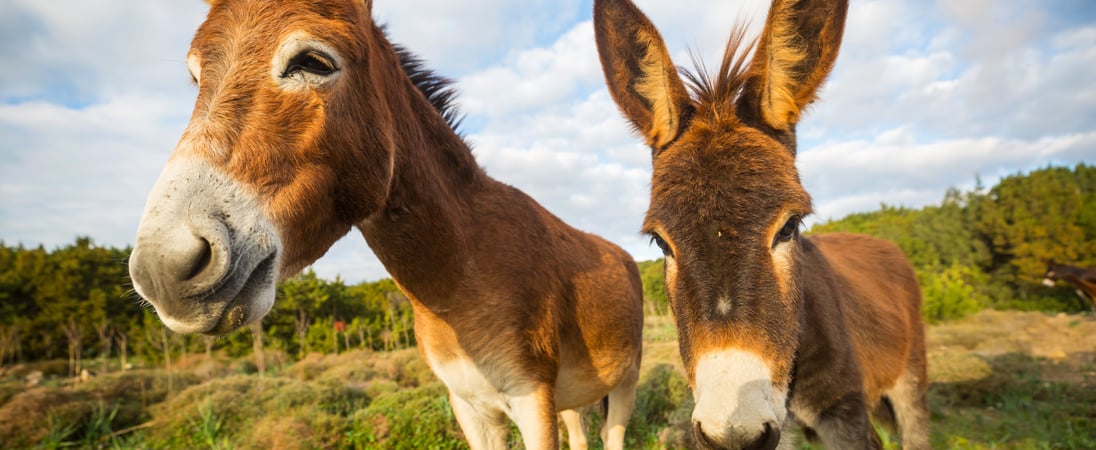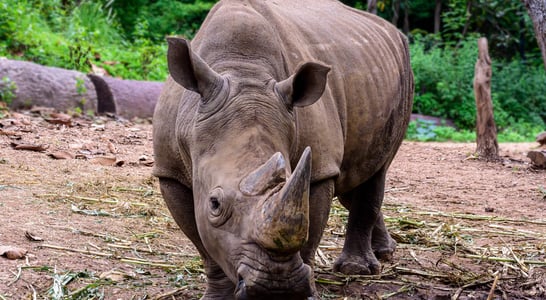
Donkey Week
Have you ever wondered about the role of donkeys in our lives beyond their humble farm presence? Donkey Week shines a spotlight on these often overlooked creatures.
This week-long observance is a time to appreciate donkeys’ significant yet quiet contributions to societies worldwide.
How to Celebrate Donkey Week
Celebrating Donkey Week can be a delightful and enlightening experience. Here are some quirky and playful ways to get involved:
Visit a Donkey Sanctuary
Why not start by visiting a donkey sanctuary? These peaceful havens offer a chance to meet and mingle with the gentle beasts. Get up close, learn about their care, and maybe even sneak in a cuddle or two.
Adopt a Donkey
If you’re feeling a deep connection, consider adopting a donkey, even if symbolically. Many sanctuaries offer programs where you can sponsor a donkey and contribute to its upkeep.
Go on a Donkey Trek
Some sanctuaries organize donkey treks for the more adventurous. Walk alongside these sturdy companions through scenic trails, and let them carry your supplies. It’s a great way to enjoy nature and bond with these incredible animals.
Attend Educational Talks
Many events during Donkey Week include educational talks and workshops. These sessions are fantastic opportunities to learn about donkey health, behavior, and the important roles they play in ecosystems and communities.
Participate in Online Events
Can’t make it in person? No problem! Many sanctuaries offer online events and live streams during Donkey Week. It’s a convenient way to participate from anywhere in the world.
Volunteer
Roll up your sleeves and volunteer at a local donkey sanctuary. Helping out can give you a new perspective on the hard work that goes into animal care and conservation.
Spread the Word
Finally, use your voice on social media to raise awareness about donkeys’ plight and the importance of their welfare. Share posts, join campaigns, or simply tell the stories of the donkeys you meet to inspire others.
These activities can make your Donkey Week celebration both memorable and impactful, bringing light to these often-overlooked animals.
Why Celebrate Donkey Week?
It’s not just about giving these hardy animals a pat on the back! Donkeys have been vital work partners to humans for thousands of years, playing a crucial role in agriculture, transportation, and even wartime efforts. Their resilience and versatility are unmatched in many rugged terrains where modern vehicles fail to tread.
Donkey Week also reminds us of the need for donkey welfare and conservation. Events like visits to donkey sanctuaries raise awareness of their well-being and the challenges they face.
It’s a call to recognize and respect the dignity of every donkey, from the ones plowing fields to those delighting children with rides. Join in celebrating these incredible animals and learning more about their impact on human history and culture.
History of Donkey Week
Donkey Week began in 1983 as a celebration of the valuable roles that donkeys have played in human society throughout history. This special week focuses on appreciating these sturdy animals for their contributions and raising awareness about their needs and welfare.
Historically, donkeys have been indispensable in various cultures for transportation and agriculture. They have been used to carry goods over long distances and tough terrains, showcasing their resilience and endurance. Donkeys have not only helped in the fields but also during significant historical periods like the mining booms, where they transported ores and goods.
The initiative for Donkey Week was inspired by the desire to honor these hard-working animals and to promote their well-being.
Events during this week often include visits to donkey sanctuaries, which aim to educate the public about donkeys and encourage support for their care and preservation.
Also on ...
View all holidaysNational Tourism Day
Discover the beauty of our world! Take a trip, explore new places, and make unforgettable memories. Pack your bags and let's hit the road.
No Socks Day
Go barefoot, dig out your sandals, or take the opportunity to stay home and let your feet relax, free of their usual prison of socks and constraining shoes.
National Public Gardens Day
Get outside, get some fresh air, and literally stop and smell the roses by finding a public garden to stroll through and enjoy, by yourself or with those you love.
We think you may also like...
National Endangered Species Day
Many magnificent species of animal and insect are at risk of going extinct, so join the cause by volunteering, donating, or spreading awareness of these threats.
World Nature Conservation Day
Caring for the planet's beauty and creatures is like giving the Earth a big, loving hug. Join the effort and make a positive impact!








